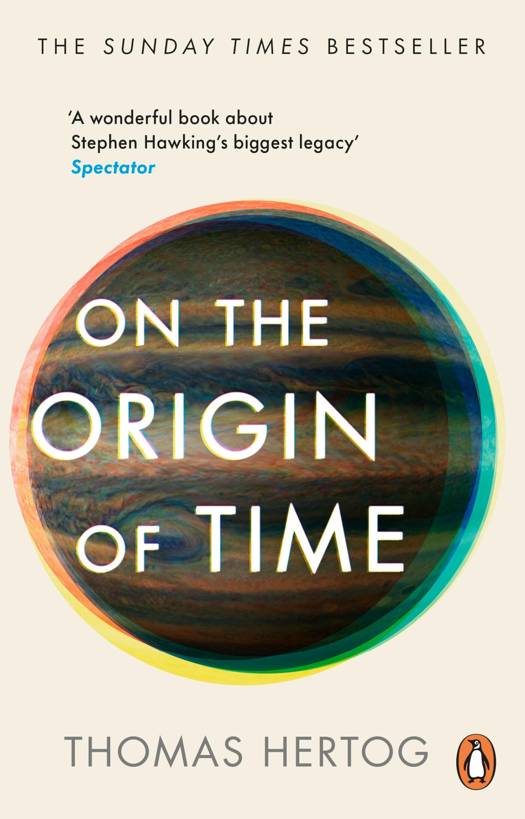
- Retrait gratuit dans votre magasin Club
- 7.000.000 titres dans notre catalogue
- Payer en toute sécurité
- Toujours un magasin près de chez vous
- Retrait gratuit dans votre magasin Club
- 7.000.0000 titres dans notre catalogue
- Payer en toute sécurité
- Toujours un magasin près de chez vous
15,45 €
+ 30 points
Format
Description
Perhaps the biggest question Stephen Hawking tried to answer in his extraordinary life was how the universe could have created conditions so perfectly hospitable to life.
Pondering this mystery led Hawking to study the big bang origin of the universe, but his early work ran into a crisis when the maths predicted many big bangs producing a multiverse - countless different universes, most of which were far too bizarre to harbour life.
Holed up in the theoretical physics department at Cambridge, Stephen Hawking and his friend and collaborator Thomas Hertog worked shoulder to shoulder for twenty years on a new quantum theory of the cosmos. As their discoveries took them deeper into the big bang, they were startled to find a deeper level of evolution in which the physical laws themselves transform and simplify until particles, forces, and even time itself fades away. Once upon a time, perhaps, there was no time. This led them to a revolutionary idea: the laws of physics are not set in stone but are born and co-evolve as the universe they govern takes shape.
On the Origin of Time takes the reader on a quest to understand questions bigger than our universe, peering into the extreme quantum physics of black holes and the big bang and drawing on the latest developments in string theory. As Hawking's final days drew near, the two collaborators published a final theory proposing their radical new Darwinian perspective on the origins of our universe.
Hertog offers a striking new vision that ties together, more deeply than ever, the nature of the universe's birth with our existence. Their theory profoundly transforms the way we think about our place in the order of the cosmos and may ultimately prove Hawking's biggest legacy.
Pondering this mystery led Hawking to study the big bang origin of the universe, but his early work ran into a crisis when the maths predicted many big bangs producing a multiverse - countless different universes, most of which were far too bizarre to harbour life.
Holed up in the theoretical physics department at Cambridge, Stephen Hawking and his friend and collaborator Thomas Hertog worked shoulder to shoulder for twenty years on a new quantum theory of the cosmos. As their discoveries took them deeper into the big bang, they were startled to find a deeper level of evolution in which the physical laws themselves transform and simplify until particles, forces, and even time itself fades away. Once upon a time, perhaps, there was no time. This led them to a revolutionary idea: the laws of physics are not set in stone but are born and co-evolve as the universe they govern takes shape.
On the Origin of Time takes the reader on a quest to understand questions bigger than our universe, peering into the extreme quantum physics of black holes and the big bang and drawing on the latest developments in string theory. As Hawking's final days drew near, the two collaborators published a final theory proposing their radical new Darwinian perspective on the origins of our universe.
Hertog offers a striking new vision that ties together, more deeply than ever, the nature of the universe's birth with our existence. Their theory profoundly transforms the way we think about our place in the order of the cosmos and may ultimately prove Hawking's biggest legacy.
Spécifications
Parties prenantes
- Auteur(s) :
- Editeur:
Contenu
- Nombre de pages :
- 336
- Langue:
- Anglais
Caractéristiques
- EAN:
- 9781804991121
- Date de parution :
- 30-04-24
- Format:
- Livre broché
- Dimensions :
- 129 mm x 198 mm
- Poids :
- 244 g

Les avis
Nous publions uniquement les avis qui respectent les conditions requises. Consultez nos conditions pour les avis.






